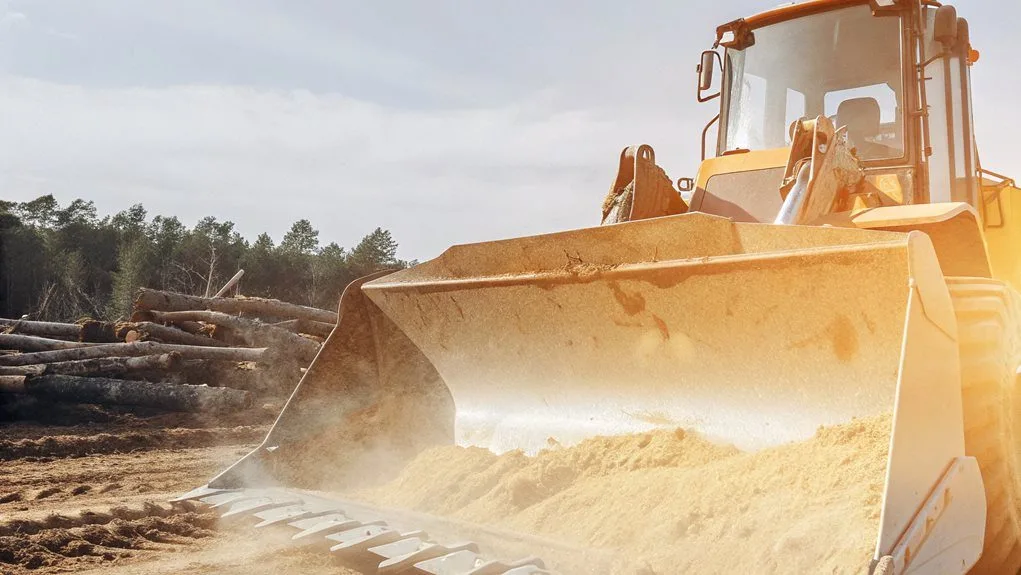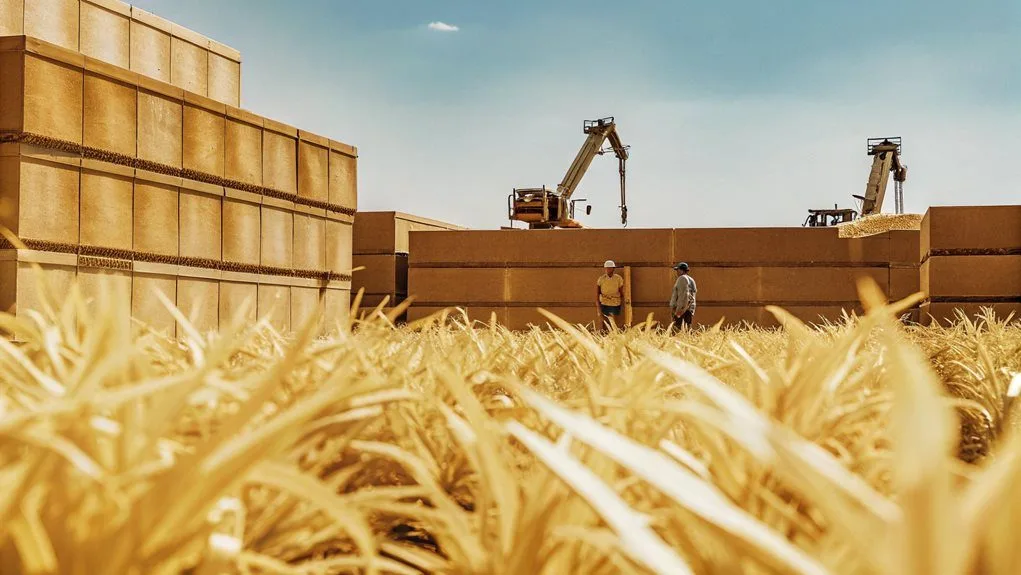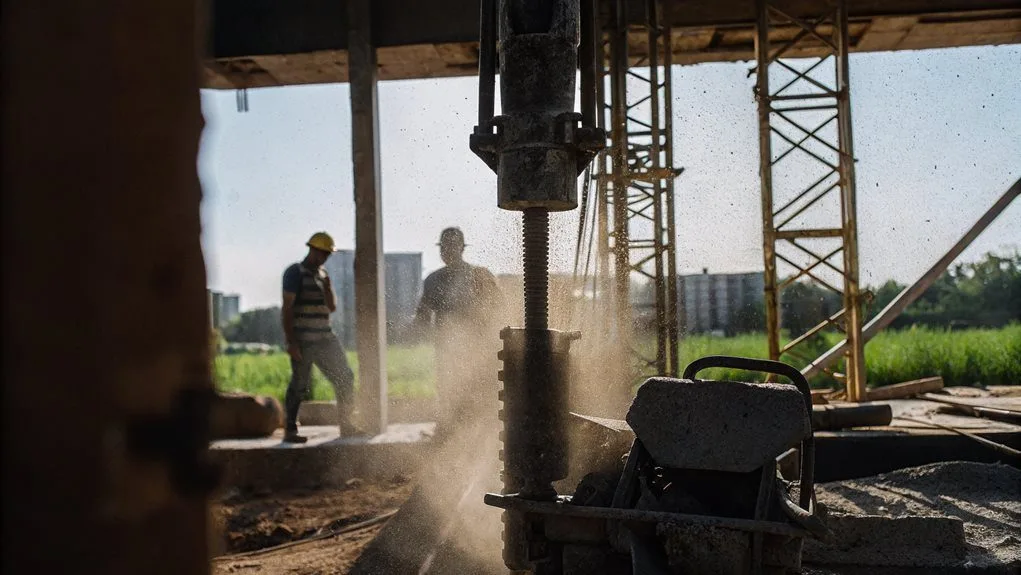Selecting the right earthmoving equipment is a pivotal step in the success of any construction or excavation project. You're likely here because you're weighing your options, seeking to match your project's unique demands with the best machinery available. This decision not only affects the efficiency of your operations but also has a direct impact on your project's bottom line. From the nuanced capabilities of excavators to the robust power of bulldozers, understanding which machine fits your needs can feel like navigating a maze.
With years of experience in the construction industry, we've seen firsthand the challenges that come with choosing earthmoving equipment. The landscape is vast, and the stakes are high. Every project has its quirks, and there's no one-size-fits-all solution. That's why we're here to guide you through this critical decision-making process, ensuring that you're equipped with the knowledge to select machinery that aligns perfectly with your project goals. As you delve deeper into this article, rest assured that your queries and concerns will be addressed, paving the way for a decision that brings your project to its fullest potential.
Key Takeaways
- Consider equipment tasks, size, and site conditions for optimal selection.
- Evaluate costs, availability, and rental durations for informed decisions.
- Opt for flexible pricing, maintenance, and training programs for smooth rentals.
- Prioritize transparent pricing, quality service, and safety for hassle-free experiences.
Earthmoving Equipment Options Overview
In the realm of earthmoving operations, a comprehensive understanding of the diverse array of equipment options is essential for achieving optimal efficiency and productivity. Earthmoving projects often require a range of equipment to tackle different tasks effectively.
Backhoe loaders, with their versatile nature, are suitable for various activities in challenging environments. Excavators offer powerful digging capabilities, while skid steer loaders excel in tasks like grading and hauling. Track loaders provide stability on rough terrain, making them ideal for heavy-duty projects. Mini-excavators shine in projects with restricted access, thanks to their compact size and maneuverability.
Hydraulic excavators stand out with their enhanced horsepower, increased lift capacity, and the ability to use various attachments, adding to their versatility on diverse projects. Understanding the strengths and capabilities of each equipment type is crucial for selecting the right machinery to ensure the success of earthmoving endeavors.
Popular Earthmoving Equipment Choices
Earthmoving equipment choices that are widely favored in various construction projects include excavators, backhoe loaders, skid steer loaders, wheel loaders, and compact track/multi-terrain loaders. Excavators are essential for their versatility in tasks such as digging, mining, and grading. Backhoe loaders stand out due to their combined digging and loading capabilities, making them suitable for a wide range of projects. Skid steer loaders offer compact size and versatility, equipped with various attachments for construction and landscaping needs. Wheel loaders excel in hauling and lifting heavy loads on construction sites. Compact track/multi-terrain loaders are known for their power, traction, and productivity, especially in challenging terrains. Below is a table summarizing key features of these popular earthmoving machines:
| Earthmoving Equipment | Key Features |
|---|---|
| Excavators | Versatile, ideal for digging, mining, and grading tasks |
| Backhoe Loaders | Combined digging and loading functions |
| Skid Steer Loaders | Compact, versatile, multiple attachments |
| Wheel Loaders | Significant hauling and lifting power |
| Compact Track Loaders | Power, traction, productivity in rugged conditions |
Key Considerations for Equipment Selection
When selecting earthmoving equipment for construction projects, it is imperative to carefully assess the specific tasks, power requirements, materials, ground conditions, and terrain challenges to ensure optimal efficiency and productivity. Here are key considerations for equipment selection:
- Task Evaluation: Determine the specific tasks the equipment needs to perform, such as digging, loading, or grading.
- Power Requirements: Consider the size and power needs of excavators, loaders, dozers, dump trucks, and other earthmoving machinery.
- Material and Terrain: Assess the type of materials at the construction site and the condition of the ground surface to choose equipment suitable for the job.
Selecting versatile equipment that can adapt to changing conditions ensures efficient operations. By carefully analyzing these factors, you can make informed decisions that lead to successful completion of construction projects while maximizing productivity and minimizing downtime.
Factors Impacting Rental Decisions
When considering earthmoving equipment rental, factors such as cost considerations, equipment availability, and rental duration options play a critical role in the decision-making process.
Cost considerations involve evaluating the rental rates against the project budget, while equipment availability ensures that the required machinery is accessible when needed.
Additionally, rental duration options must align with the project timeline to ensure efficient completion of tasks within the specified timeframe.
Cost Considerations
Assessing the cost considerations associated with renting earthmoving equipment involves careful evaluation of factors such as equipment size, rental duration, and additional services to determine the overall rental expenses. When making rental decisions, it's essential to consider:
- Type of earthmoving equipment needed and its availability
- Impact of demand on rental prices
- Potential cost savings through long-term rentals or bundling multiple equipment rentals
Considering these factors can help in making informed choices that align with budgetary constraints while ensuring the required equipment is accessible when needed.
Additionally, understanding the influence of demand on pricing can aid in negotiating better rental rates for the desired earthmoving equipment.
Equipment Availability
Considering the availability of earthmoving equipment is crucial in making informed rental decisions, as factors such as demand, seasonality, and specific project requirements significantly impact the options offered by rental companies. The table below outlines key factors influencing equipment availability for hire:
| Availability Factors | Impact | Mitigation Strategies |
|---|---|---|
| Demand & Seasonality | High demand may lead to limited equipment options | Plan ahead and book in advance to secure needed machinery |
| Equipment Age & Maintenance Schedules | Older machines may have higher downtime | Inquire about maintenance records and opt for well-maintained equipment |
| Communication with Rental Companies | Lack of clear communication can lead to misunderstandings | Clearly outline project needs and timelines to rental companies |
Timely booking and effective communication with rental companies are essential for securing the required earthmoving equipment for specific projects.
Rental Duration Options
In determining the optimal rental duration for earthmoving equipment, project managers must carefully evaluate key factors influencing their rental decisions. When considering rental options, project timeline, budget constraints, and equipment availability play crucial roles in determining the most suitable duration.
Here are three important considerations:
- Short-term rentals offer flexibility for small projects or specific tasks.
- Long-term rentals are more cost-effective for ongoing or large-scale projects.
- Flexible duration options provided by rental companies can adapt to changing project needs or unexpected delays.
Rental Duration and Pricing Structures
When considering earthmoving equipment hire, understanding the available rental periods, how costs are calculated, and the flexibility in pricing structures is crucial for making informed decisions.
Rental period options can range from daily, weekly, to monthly durations, each impacting the overall cost differently.
Pricing flexibility, including discounted rates for long-term rentals or special promotions, can influence budget planning and the selection of equipment for construction projects.
Rental Period Options
Flexible rental periods for earthmoving equipment hire encompass daily, weekly, and monthly options to cater to varying project durations and construction needs. Earthmoving equipment rental durations are structured to accommodate short-term projects or long-term construction needs. Pricing structures vary based on the rental period selected, with discounts often offered for longer-term rentals.
Understanding the rental period options helps in budget planning and project scheduling. Renting earthmoving equipment allows for cost-effective utilization based on the specific duration of the project.
- Daily, weekly, and monthly rental options available
- Discounts offered for longer-term rentals
- Ideal for both short-term projects and long-term construction
Cost Calculation Methods
To accurately determine the costs associated with earthmoving equipment hire, understanding the various factors influencing the pricing structures, including rental duration and additional services, is essential. Rental durations can range from daily, weekly, to monthly options, with pricing structures typically factoring in equipment type, rental duration, and any added services.
Some companies may offer discounts for long-term rentals or special rates for specific equipment, but it's crucial to grasp the billing process to anticipate additional costs such as delivery fees and taxes. Transparent pricing practices play a vital role in facilitating accurate cost calculation and effective budgeting for earthmoving equipment hire, ensuring clients can plan their expenses efficiently.
Pricing Flexibility Offered
A fundamental aspect of earthmoving equipment hire pricing revolves around the versatility in rental durations and corresponding pricing structures available to accommodate varying project needs and financial considerations. When considering earthmoving equipment hire, it's crucial to understand the pricing flexibility offered, including discounted rates for longer rental periods. This knowledge enables better budget planning and cost management throughout the rental period, helping to avoid unexpected costs.
To make an informed decision, consider the following points:
- Different rental options available: daily, weekly, or monthly rates.
- Flexible pricing structures to suit various project timelines and budgets.
- Inquiring about additional fees or charges associated with the rental duration is essential for cost control.
Additional Services and Support Offered
Equipment rental companies often extend their offerings beyond just machinery, providing essential additional services and support for customers. These additional services may include maintenance programs to ensure the equipment operates safely and reliably. Some companies offer expert maintenance services to guarantee the equipment's safe operation.
Training classes are often available to educate users on proper equipment operation and safety procedures, enhancing overall job site safety. Rental protection plans give customers peace of mind by covering unexpected damages or malfunctions during the rental period. Look for companies that offer a 'No Sweat Guarantee' for hassle-free rentals and prioritize quality customer service.
Unleash Your Project Potential
Bendet Plant & Tool Hire makes every job easy with top-notch Plant Hire, Tool Hire, Earthmoving, Forestry Services, and Breakdown & Towing. No need to stress—our team has the right tool for every task. Need reliable tyres for your fleet? Check out Africa Tyres for superb quality and service.






